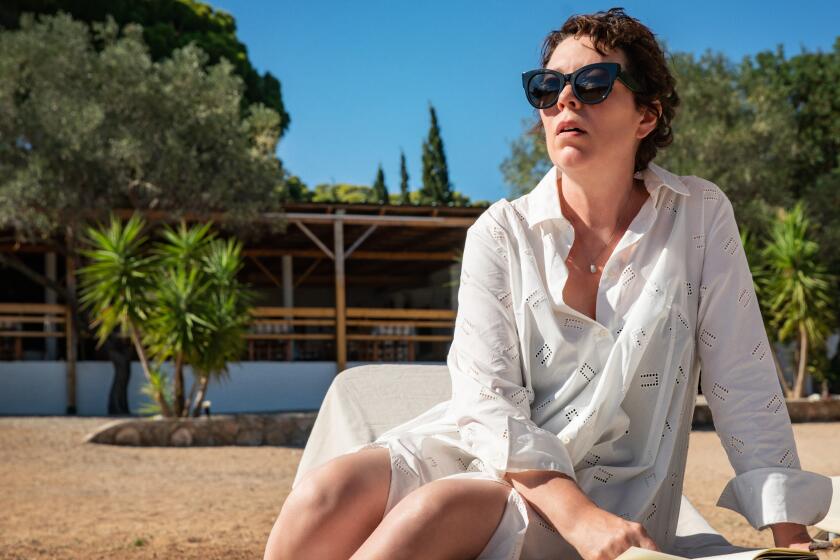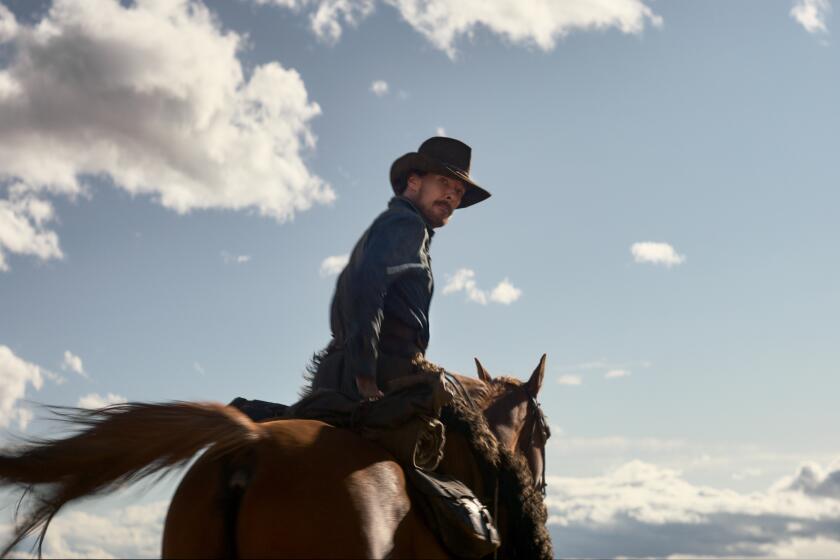Maggie Gyllenhaal is a natural-born director. Netflix gives her the spotlight
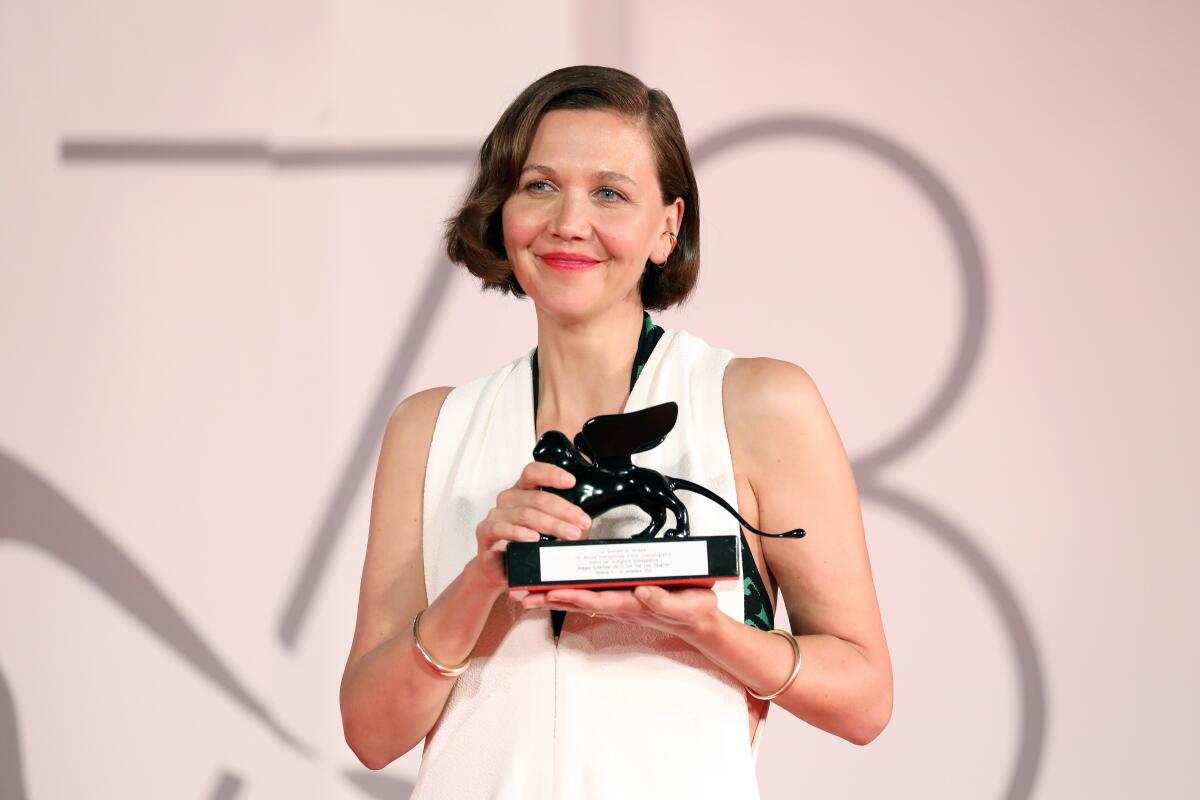
- Share via
TELLURIDE, Colo. — Maggie Gyllenhaal has devoured movies and books for as long as she can remember, and she always noticed that when it came to stories about women, it’d usually feel like some kind of fantasy or wish-fulfillment version of what it’s like to be actually be a woman.
More often than not, these films and books were written by men, but sometimes women wrote them too because the tradition of this type of storytelling was so pervasive that it was almost inescapable. Taking all this in, Gyllenhaal began to wonder: Am I OK? Because what I’m feeling is a little stranger, a little darker, a little more joyful than what I’m seeing portrayed.
Then at 16, Gyllenhaal saw Jane Campion’s “The Piano,” and she felt something articulated that she’d never seen on screen. A couple of decades later, Gyllenhaal began reading the novels of Elena Ferrante, the anonymous Italian author of the four-book series of “Neapolitan Novels” as well as “The Lost Daughter,” the book Gyllenhaal would end up adapting and directing as her feature debut.
Premiering at the Venice Film Festival — where it would go on to win Gyllenhaal the jury prize for best screenplay after this interview was conducted — before screening at the Telluride Film Festival, “The Lost Daughter” follows Leda (Olivia Colman), a divorced professor who becomes emotionally involved and borderline obsessed with a young mother (Dakota Johnson) while vacationing on a Greek island.
Flashbacks show why Leda (played as a younger woman by Jessie Buckley) might be zeroing in on a woman struggling with the demands of motherhood. Mixing elements of a psychological thriller with an astute, uncompromising character study, Gyllenhaal’s movie will likely generate plenty of conversation when it lands in theaters on Dec. 17 and two weeks later on Netflix.
I chatted with Gyllenhaal, fresh off an evening drinking tequila (just one shot, she says, because of the altitude) and dancing to Greek music at a small dinner held in the film’s honor at Telluride.
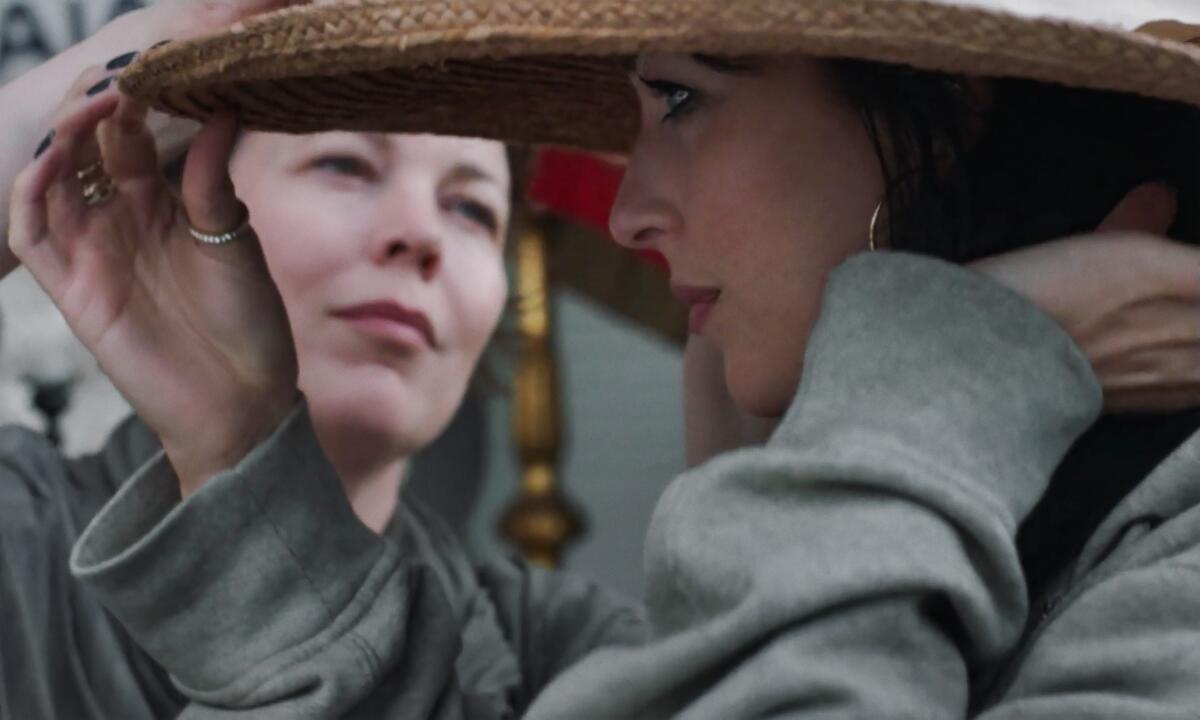
When we last spoke, you told me that when you read Ferrante’s “Days of Abandonment,” it disturbed you so much that you literally dropped it and didn’t pick it back up for two days. What about “The Lost Daughter”?
It was the same as all the Ferrante books. I thought, “This woman is so f— up.” And then in the next breath, “Actually, I really relate to her. Am I f— up or is this a common experience that many people have that isn’t being talked about?” Which is a comforting feeling because it means you’re not alone.
So I thought, “Let’s take that terror of recognizing yourself in something painful, dark, shameful, confusing, aberrant and not just feel it all alone in your room. Put it on a screen in a big room full of people sitting in the dark together, where you might be sitting next to a woman who you have never met before or your husband or your mom or your daughter. Then there’s a possibility for something radical to happen.” That’s what made me want to adapt it into a movie.
Maggie Gyllenhaal’s “The Lost Daughter” and Jane Campion’s “The Power of the Dog” are Netflix titles that benefit from big-screen exposure at Telluride.
In what ways did you relate to her as the mother of two daughters?
We’re never told the darkest, most painful and shameful feelings that I think everybody feels while parenting. Parenting pushes you to the edge. Parenting stretches you in places you have never been before. So how could it not include — along with the joy, the ecstasy, the massive happiness — all the other colors of the rainbow? The terror, the anxiety. If you don’t talk about those things, you get to feeling suffocated like Leda does. If you talk about them, you might be able to cope. At least you know you’re not alone.
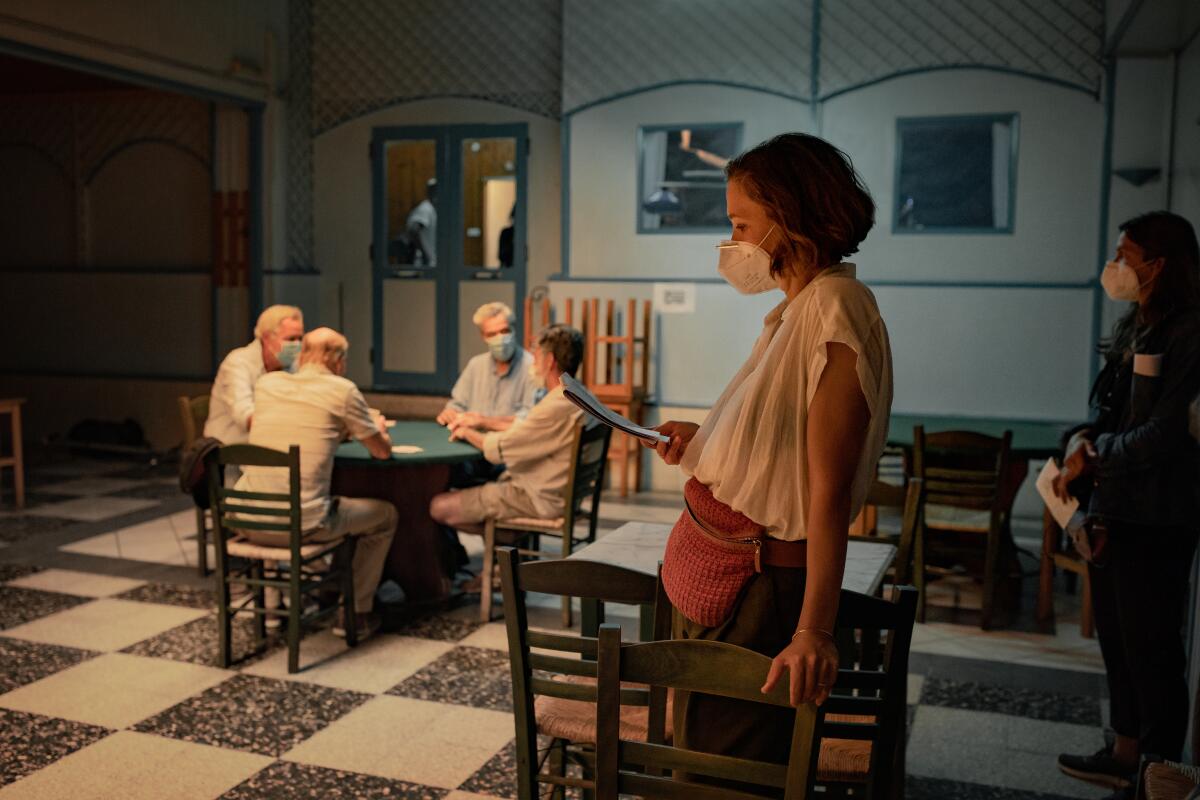
You told me a story once about your oldest daughter being kind of obsessed with having you read “Murder on the Orient Express.” And you were happy to — just not at the moment when you were working. There’s a scene in the movie that almost mirrors that.
Yes. With my daughter, I wondered if she can feel that a piece of my mind is elsewhere and she wants it back with her. She feels that switch where I have something else on my mind — and it’s pretty intense and it’s pretty profound and she’s trying to get my attention, trying to get my focus, trying to control me a little bit. I’m proud to say that I did read that book after we finished. I didn’t want to. But I did. And it was fun.
You had six weeks to make this movie, your first time directing. Your husband [actor Peter Sarsgaard] is in the movie. And I understand you brought your daughters to Greece ...
Yes, and Peter did the heavy lifting with them. I would get in bed with them at the end of the day and we would watch “The Great British Baking Show.” I would fall asleep, of course. [Laughs]
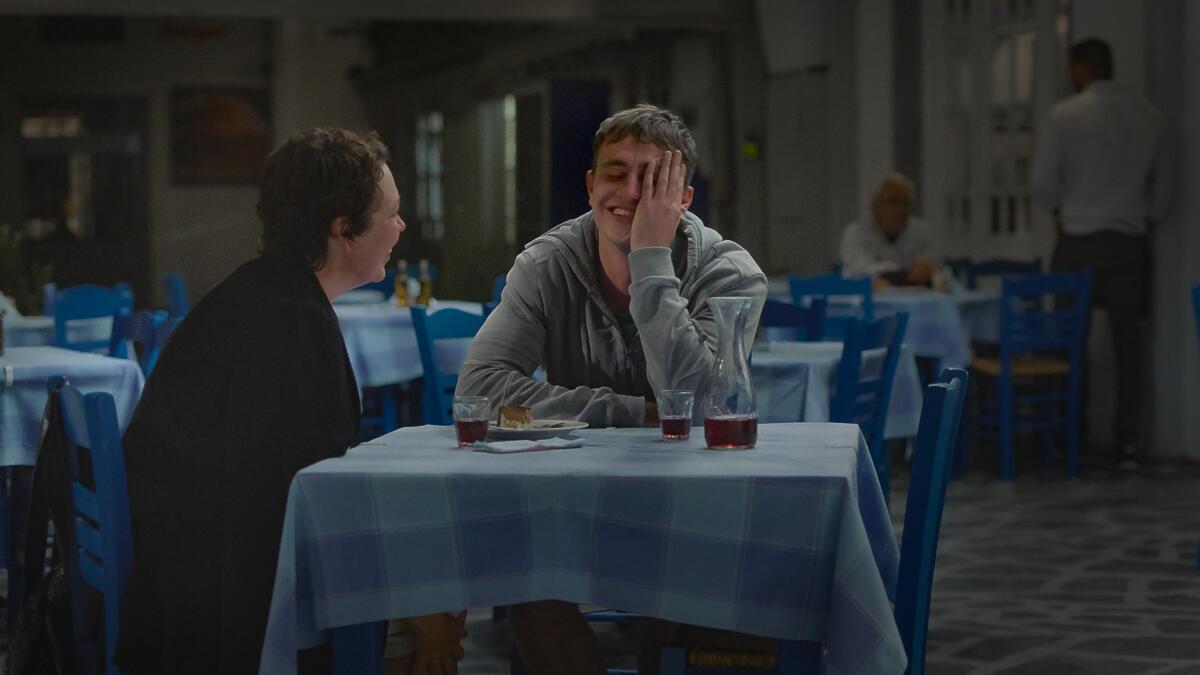
This would be a weird movie to test screen. You’d get cards back — that woman is so unlikable! But what was it like getting feedback on your directorial debut in the middle of the pandemic?
People gave me a lot of helpful notes while I was writing it. Peter gave me a good one when I was really jamming. He told me I needed to move a moment earlier in the script. I was like, “No. And f— you.” And for weeks I was like, “No, the script is working,” then, “No, God, f— you’re right.”
But I didn’t see the movie with an audience until Venice. I arrived to the city a little early. I thought as long as I’m here, I’m going to go to the opening ceremony. I’m going to see films. I’m going to see Jane Campion’s film [“The Power of the Dog”]. I was thrilled to be invited, so I’m going to take it all in. But I realized in retrospect that I was holding my breath the whole time.
And then I’m sitting in the theater next to Olivia and Dakota who had never seen it, and I could feel their vulnerability. I know that feeling as an actor. But I got out of that screening and I felt like I was walking on air. And now I just want to create things. I miss acting, but making this movie gave me the best feeling.
High-profile contenders including “Spencer,” “The Power of the Dog,” “King Richard” and “Belfast” kick off an Oscar season that’s looking like old times.
More to Read
Only good movies
Get the Indie Focus newsletter, Mark Olsen's weekly guide to the world of cinema.
You may occasionally receive promotional content from the Los Angeles Times.
